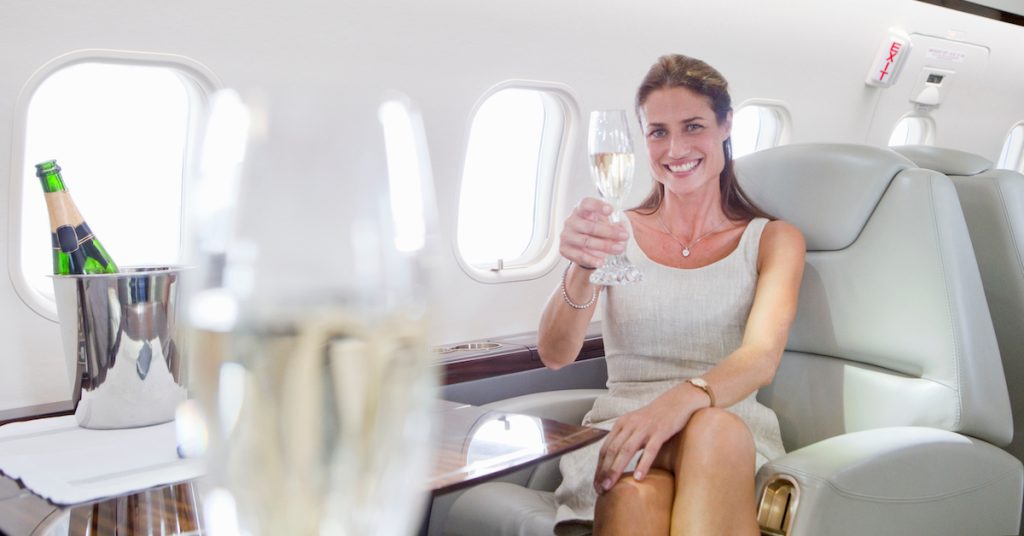Research indicates that a significant number of European consumers support levies on frequent flyers, recognising the environmental impact of air travel.
A comprehensive survey highlights this sentiment, signalling a strong push towards sustainable practices in aviation across major markets.
Public Support for Frequent Flyer Levy
A recent survey across major European travel markets reveals substantial public backing for imposing levies on frequent flyers. The study, which involved over 12,000 adults from countries including the UK, Germany, and France, indicates that half of the respondents view such a levy as a fair policy. This consensus highlights a growing public awareness of the environmental impact of frequent flying.
An overwhelming 53% of respondents believe that the responsibility for decarbonising aviation should be borne by passengers through increased ticket prices or jet fuel taxes. This data underscores a shift in consumer expectations, where the environmental costs of flying are seen as a necessary financial contribution from those who travel often.
Opposition from Frequent Flyers and Upper Classes
Despite the overall support, frequent flyers and those accustomed to first or business class are notably opposed to the proposed levies. Approximately 31% of regular flyers deem the levy unfair, suggesting a divide between casual and frequent travellers’ perceptions of fairness. This opposition points to an inequality in how different traveller demographics perceive the cost of environmental sustainability.
Interestingly, a significant portion of frequent flyers, representing nearly half of this group, still regard the levy as fair. This contradiction illustrates the complex views held by travellers who may recognise the necessity of the levy but are reluctant to bear additional costs personally.
Concerns About Private Jets and Class-Based Charges
The study also reveals strong opinions regarding private jets, with 43% of participants advocating for a complete ban and 53% supporting higher taxes on jet fuel. These findings reflect a growing sentiment that luxury travel should incur higher costs due to its disproportionate environmental impact.
Furthermore, 36% of the respondents believe business class passengers should pay more, with 26% attributing similar responsibility to frequent flyers. This suggests a broader consensus on class-based charges as a tool for promoting aviation sustainability. These views could influence future policy direction towards more equitable travel regulations.
Environmental Concerns Versus Practical Barriers
Notably, while two-thirds of respondents express worry about climate change, this concern does not significantly affect flying habits. The survey identifies cost as a more substantial deterrent to increased travel rather than environmental factors. This paradox highlights the challenge for policymakers in balancing effective environmental strategies with consumer affordability.
Half the survey participants indicated they would fly more if financial and time conditions allowed, despite environmental concerns. This data suggests that while environmental awareness is rising, practical and financial barriers remain the primary considerations for most travellers.
Potential Impact on Airline Industry and Policy
The support for a frequent-flyer levy as both popular and effective reflects a potential shift in the aviation sector’s approach to sustainability. Such levies could drive airlines to implement greener technologies and practices, thereby aligning closer with evolving passenger expectations. The survey’s findings may prompt regulatory bodies to consider these consumer insights when crafting aviation policies.
A significant 44% of respondents assert that airlines should do more to mitigate their environmental footprint. This public pressure could serve as a catalyst for change within the industry, encouraging airlines to adopt more sustainable practices as standard operations.
Challenges in Implementing Policy Changes
Despite the increasing support for levies, the survey also indicates a potential hurdle in the form of unpopular caps on flying. While financial instruments such as levies are gaining traction, outright limitations on flying remain contentious among the public, highlighting the delicate balance policymakers must strike.
Policymakers face the challenge of incorporating public opinion into environmental legislation while considering the economic implications for the aviation sector. The study reveals a nuanced landscape where consumer support for sustainability must be weighed against the potential economic impact of such measures.
Conclusion
The continuing dialogue on levies for frequent flyers underscores a significant shift in public attitude towards environmental responsibility in aviation. The support for financial measures over outright bans indicates a preference for balanced solutions that consider both environmental and economic factors, potentially guiding future policy development.
The dialogue on frequent flyer levies reflects a change in consumer attitudes, valuing financial contributions over travel bans.
This evolving perspective may shape future aviation policies towards more sustainable solutions, balancing eco-friendliness with practical considerations.

